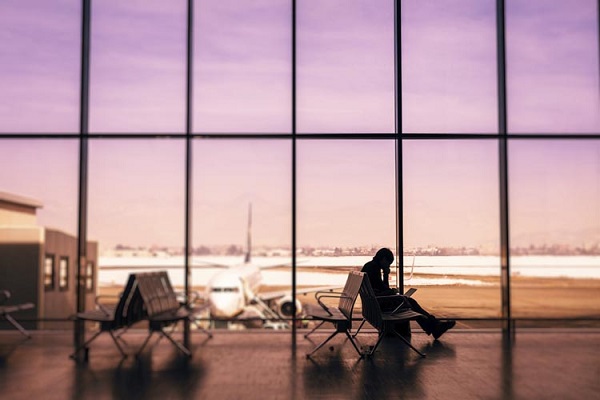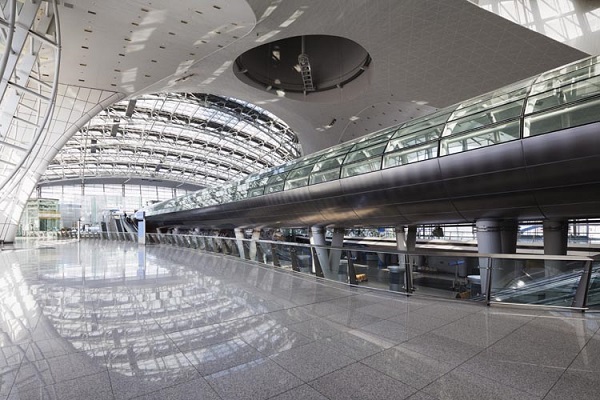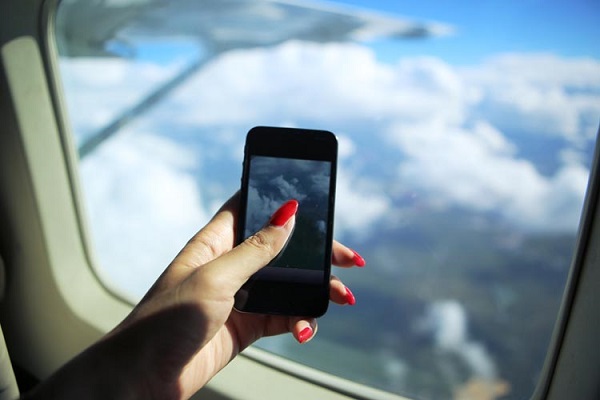Travel, as we know it, is an ever-evolving machine. From the first passenger flight in 1914 to today’s data that shows 65 billion passengers have flown in the last 100 years, we need to embrace the pace and look ahead to the future of travel. What will the next 100 years bring? Lonely Planet has put together a list of their Top 10 travel predictions of the future that we are eager to share. What are your thoughts on future travel?
1. Travel as life, not luxury – Travel is becoming an integrated part of everyday life and with 8 million people flying each day, the concept of travel as a rare escape is outdated. Obstacles that prevented people travelling, like high costs, continue to fall away; for those with the means, travel has become a lifestyle. Barriers like language are disappearing with the advent of ever-smarter translation apps. Cheap flights are empowering time-short travellers to jet off for weekends. Opportunities to work remotely are unchaining legions of workers from their desks. And the rise in grown-up gap years is making long-term travel an aspiration for all ages.
2. International festival fever – With flights faster and cheaper than ever before, travellers are taking advantage of a global calendar of events. 2014 was a record-breaking year for travellers roaming widely for sports, music festivals and carnivals (think: the World Cup, Carnival, Exit Festival and more … the list goes on).
3. Flight of fantasy – Increased competition on travel routes is encouraging airlines to improve experience for economy fliers. Lie-flat seats, meals prepared by celebrity chefs, wine lists to make a French sommelier salivate… What about Norwegian Air’s free on-board wifi and Air New Zealand’s “Skycouch” allowing more relaxed seating for families? Sweet. With online flight comparison services in the pipeline within the next couple of years, economy travellers are on the cusp of personalizing their travel experiences like never before.
4. The evolution of airports – The success of airport spas, art galleries and green areas is sure to bring bigger and bolder leisure activities within the airport experience. The old notion of airports as chaotic and impersonal is disappearing. Travellers can already retreat to a mini-jungle in Kuala Lumpur or browse through Amsterdam Schiphol’s library. With skate hire and outdoor trails at Zurich airport, luxury golf courses in Hong Kong and musical performances at Incheon, we can expect to see many more airports showcasing their local finery.
5. The rise of experience hotels – With travel adventures starting at the airport, it follows that travellers are seeking out accommodation to enhance their experiences too. Why bed down in a standard room when you could swing into a treehouse by zipline (like in Laos), hear the clang of a closing prison door (in Slovenia) or snooze in a Trojan Horse (in Belgium)? Whether it’s cultural immersion or shock value, travellers look set to demand much more from their accommodation in coming years.
6. Smarter sustainable travel – Green travel has hit the big time as a new generation of travellers builds sustainability into every step of their journeys. Ticking the carbon off-set box used to be enough for travellers’ consciences, but today it’s just the start. 70% of travellers expect companies to demonstrate commitment to preserving the natural environment, placing hotels, tour operators, airlines and restaurants under the microscope and prompting a boom in ecotourism and volunteering abroad. Most crucially, travellers are alert to ‘greenwashing’ and more likely to interrogate travel providers on their sustainable credentials. Hotel signs asking you to save the environment by reusing your towel? More like solar power, commitment to investing in local projects, low-impact nature tours and links with charities.
7. Travel planning in your palm – As more airlines offer paperless travel, a smartphone can be the key to planning and tracking your travel, all tailored for your experience. Geotagging has made synced-up app experiences increasingly the norm for travellers. Want a restaurant, beach or museum near the hotel you just booked or checked in at? You got it. With Google Glasses newly perched on travellers’ noses, the first stage is underway to bring augmented reality into the travel experience, with recommendations, navigation and taking photos by voice command. But even simple integrations like flight times added to your online calendar triggering updates to your phone are becoming ever-smarter. Suggested tweaks to your itinerary based on weather conditions and local events, sent directly to your phone or tablet, are on the way.
8. The rise of unplugged travel – True escapes are becoming highly valued, and remote hotels are starting to make a feature of their lack of internet and phone signal. Today’s travellers select hotels for free wifi and swap SIM cards to stay connected. But all the Instagrammed sunsets have come at a price, with travellers sneaking a look at their work emails or feeling unable to escape the churn of social media. True escapes are becoming highly valued, and remote hotels are starting to make a feature of their lack of internet or phone signal. The novelty of daily tweets from exotic locales has worn thin, and more travellers will look instead to a simple social media signoff: ‘trekking into the jungle, see you when I’m back’.
9. Return to local knowledge – Scouring online reviews remains second-nature for travellers. But travellers’ hunger for secret coves and local trattorias is emboldening them to embrace face-to-face recommendations. Online reviews will remain part of a traveller’s toolkit, but a local recommendation – whether from a taxi driver, in-the-know cafe owner or Airbnb host – has never been more highly prized.
10. Virtual travel – Travellers can now plan their travels from the comfort of their laptop, exploring on Google Streetview before seeing it for real. The onward march of Google Streetview gave travellers a virtual eye on places from the Pyramids of Giza to remote Svalbard, and tourism boards have clamoured to create virtual spaces to lure more visitors. But fears of a dystopian future, where travellers plug into a headset rather than hitting the road, are unfounded. Glimpsing a virtual world or exploring on Google Streetview is a catalyst for a generation of travellers itching to explore for themselves. And the past century’s great strides in transport and new technology have shaped a global community of explorers who are bolder and more curious than ever before.
So based on the above predictions, is technology taking the fun out of travel? At the core of Lonely Planet’s findings is the huge role technological developments will make to what we book, how we book it and how we will experience both the journey and the destination. However, the actual experience of travel will still always trump the virtual one. So long as technology enhances the experience of travel, it will always be welcome. It’s about striking the perfect balance.



Be the first to comment